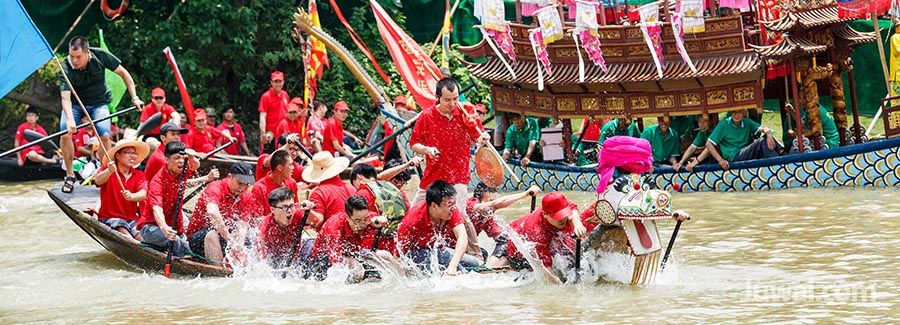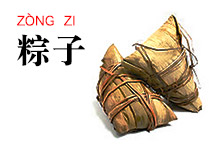Asia News
- Home
- News
- Asia News
You've successfully copied this link.
Learn Chinese: The legend behind Dragon Boat Festival

Did you know? The Dragon Boat Festival is officially known as “DuÄn WÇ” Jié” (端åˆç¯€) in China.
Celebrated on the fifth day of the fifth month of the Lunar calendar, the origins of this Chinese festival stem from several legends, but the most popular and widespread legend behind this festival is Qu Yuan, a minister of the State of Chu during the seven Warring States period (221BC – 206BC).
A staunch patriot, he advised his king to stand up against the powerful State of Qin. However, other officials slandered him in jealousy. Accused of treason, he was banished into exile where he composed countless poems depicting his love for his country – many which became evergreen classics.
Alas, his fears came true as Qin conquered Chu 28 years later. In despair, he threw himself into the river rather than live to witness his country’s complete ruin. Many locals, who greatly respected Qu Yuan as a famous poet and loyal son of Chu, were distraught over his suicide.
They raced out in boats, beating loud drums at the same time to scare away the fishes as they searched for his body. Others threw rice dumplings into the river to entice the fishes, hoping they will not eat Qu Yuan’s body.
These acts, repeated each year in his honour, have evolved over time into the Dragon Boat Festival we know of today, where the following customs are still widely practiced.
Dragon Boat Racing
Shaped after traditional Chinese dragons, each Dragon Boat is manned by a team of rowers and is led by the drummer who sits at the front of the boat. With each beat of his drum, the drummer maintains the tempo for the rowers while lifting team morale. Common belief dictates that the winning team will be blessed and bring good luck, harvest, and happiness to their village/town.
 Eating “Zòng Zi” (ç²½å)
Eating “Zòng Zi” (ç²½å)
A unique glutinous rice dumpling, Zòng Zi comes in many forms but is usually shaped like a mini pyramid. Wrapped in large flat leaves, such as lotus and bamboo leaves, the filling varies depending on region. Southern-style savoury ones are stuffed with a medley of ingredients, such as pork, chestnuts, mung beans, Chinese mushrooms, or salted egg yolks, while Northern-style sweet ones may be stuffed with red bean paste, jujubes, and more.
If you’re meeting prospective Chinese buyers or heading to China during this auspicious day, greet them with a cheery “端åˆç¯€å¿«ä¹!” (DuÄn WÇ” Jié Kuài Lè), which means “Happy Dragon Boat Festival”.
Keen to surprise them further? Give them a gift of Zòng Zi (ç²½å) or invite them to check out the local Dragon Boat Racing with you.
Liked this article? Sign up for free to get Juwai Juwai Asia Market updates!
Sort By
- 2025
- 2023
- 2022
- 2021
- 2020
- 2019
- 2018
- 2017
- 2016
- 2015
- 2014
- 2013
- 2012
Tags
- australia
- china
- chinese buyers
- investment
- juwai
- property
- real estate
- residential
- united kingdom
- united states
Resources
Our Property Marketplaces
Juwai.com >
Global property portal available in Chinese
Juwai.asia >
Asia wide portal for global real estate
Juwai News
Subscribe to receive the latest news on Asian buyers, the Asia market, and Juwai.
Thank you for subscribing to Juwai News!
Sign up for a Juwai Account now for free to enjoy FREE download access to country-specific reports on Chinese property investments.
Do you want to sign up now? Or continue if you have already signed up or you will do it later.
Thank you!
You’ve just subscribed to get updates
to the Chinese Buyer Tips blog by email.
2025 © Juwai. All Rights Reserved Privacy Policy | Terms of Service


